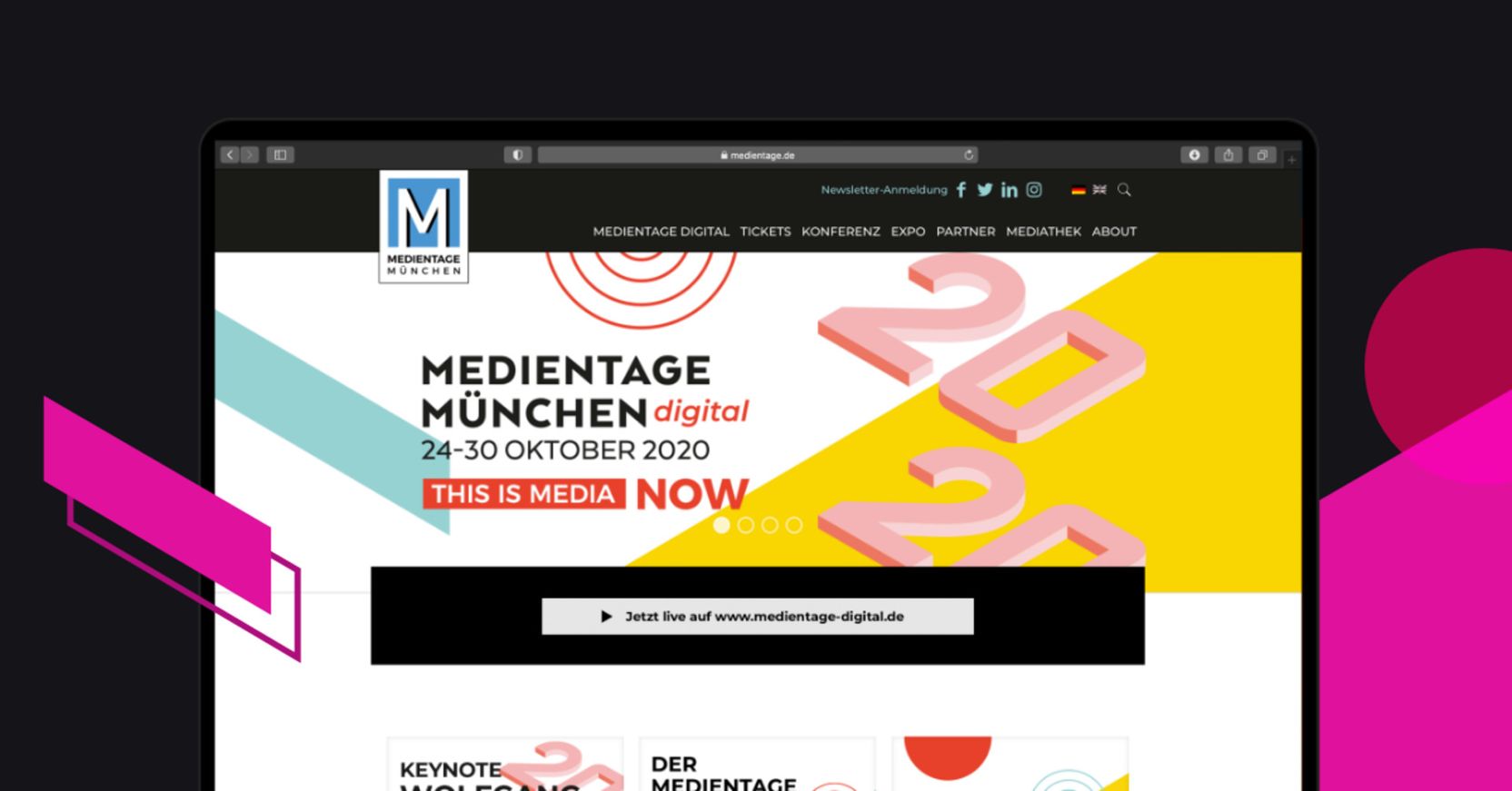Last week, the digital Medientage Munich took place under the motto "This is Media Now". Our colleague Anne Hufnagel was present and made some key points. The challenge of the Covid 19 pandemic, digitization and new work was a central theme in most panels.
COVID 19
The classic providers from print, TV and radio had of course already started with digital products some time ago. However, German-language VOD platforms such as Joyn or TV Now have experienced great growth during the pandemic. The hunger for content was very great during this time. Of course it also spurred on the big American platforms like Netflix or Amazon Prime. In the panel "TV-Summit - This is Streaming Now", all panellists agreed (whether Netflix, Joyn, Amazon or ARD-Mediathek) that the national producers are important partners for their business and further growth. The Americans also want to continue and even more rely on the German producers and also further expand the non-fiction sector.
However, there are also concerns that another lockdown could affect the production business and supply chain, even though many postponed productions from the spring could still be completed.
Digitization in journalism
Journalism also played a central role in the conference. Does the nice girl next door reach more than the TV news anchor via social media? Journalism is in great demand, especially in times of crisis. The level of trust in the media in Germany is still relatively high. But hate speech in the social media is a big challenge, even though social psychologist Pia Lamberty puts the influence of the social media into perspective and says that 40% of Germans believed that there was a left-wing lie press as early as the 1980s. The Bavarian Minister President would like to see the classic media convey the right message, classify it and create perspective.
New Work
Numerous panels also spoke about New Work. The Covid 19 pandemic has made German companies digitize much faster than planned. From one day to the next, the newsrooms were sitting in their home offices. Virtual meetings and virtual approvals are now standard. The media industry had to adapt to completely new conditions for content creation. Remote work was learned quickly and there was a vast innovation boost.
Psychological consequences, however, indicate that we still draw on corporate culture and personal relationships. The less colleagues see each other personally, the further the oxytocin level and the bond decreases. Corporate culture is created through closeness. So modern management faces a number of challenges.
There were many more exciting topics like the future of radio and audio formats, the role of artificial intelligence, the advertising market, the role of companies in online marketing and content production, sustainability in the media industry, and much more ...
Get in touch
If you have any further questions on these topics, feel free to contact our colleague Anne Hufnagel via mail or LinkedIn.




